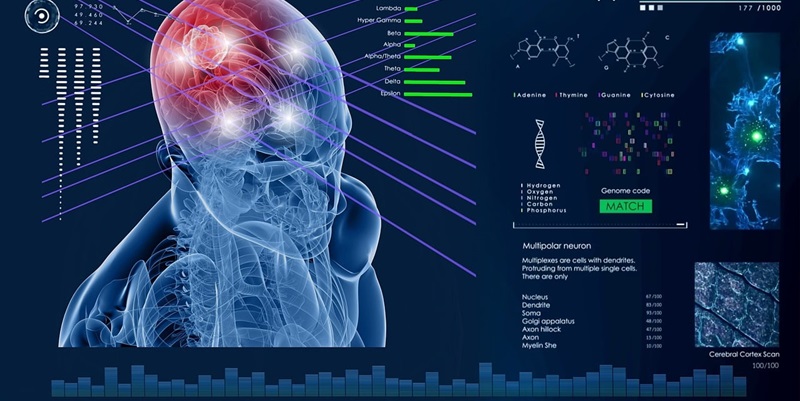In the field of neurology, advancements in technology continue to reshape the landscape of medical practice. Among these innovations, ChatGPT emerges as a groundbreaking tool that offers a new approach to neurology by providing a conversational interface that can assist neurologists in their diagnostic process. With its ability to analyze vast amounts of medical literature, research papers, and patient data, ChatGPT quickly retrieves and presents relevant information in a concise and easily understandable manner. This article explores how ChatGPT transforms neurology, improving decision-making, diagnosis accuracy, treatment planning, and ultimately enhancing patient care.
A significant challenge faced by neurologists is staying up-to-date with the rapidly evolving medical knowledge landscape. ChatGPT tackles this problem by analyzing a wide range of sources, including medical literature, research papers, and structured patient data. This robust knowledge base allows neurologists to access the most relevant and current information quickly. By presenting the information in a concise and understandable manner, ChatGPT streamlines the information retrieval process, saving valuable time for neurologists.
Improved Decision-making and Accurate Diagnoses
ChatGPT’s ability to retrieve and present relevant information empowers neurologists to make more informed decisions. The incorporation of data-driven insights enables neurologists to arrive at accurate diagnoses more efficiently. Additionally, ChatGPT’s conversational abilities have the potential to enhance patient-doctor interactions. By providing a natural and non-intimidating platform, patients can describe their symptoms in a more detailed and comprehensive manner. This enhanced communication aids neurologists in making accurate diagnoses and tailoring treatment plans to meet the specific needs of each patient.
Tailoring Treatment Plans and Optimizing Outcomes
The comprehensive understanding of patients’ symptoms and conditions facilitated by ChatGPT allows neurologists to tailor treatment plans to optimize outcomes. By receiving detailed and nuanced descriptions from patients, neurologists gain deeper insight into the effectiveness of existing treatments and can suggest potential modifications to improve outcomes. Furthermore, ChatGPT’s real-time feedback system enables neurologists to monitor patients’ progress and track medication efficacy. This constant assessment and feedback loop plays a vital role in optimizing treatment outcomes and improving patients’ quality of life.
Real-time Feedback and Improved Patient Quality of Life
One of the significant advantages of integrating ChatGPT into neurology practice is its ability to provide real-time feedback. Neurologists can monitor patients’ progress, track symptom alleviation, and identify potential adverse effects promptly. By leveraging this real-time feedback, neurologists can make informed decisions regarding treatment adjustments, ensuring that patients receive the most effective care. The result is an enhanced patient experience and improved quality of life.
Accessing Relevant and Current Information
ChatGPT’s extensive knowledge base ensures that neurologists have access to the most up-to-date and relevant information available. By continually analyzing the latest research and medical literature, ChatGPT empowers neurologists to provide the best possible care to their patients. This innovative tool serves as a valuable resource, assisting neurologists in making well-informed decisions and staying at the forefront of medical advancements.
Acknowledging Limitations
While ChatGPT offers numerous advantages, it is important to acknowledge its limitations. Conversational AI, although powerful, should be complemented by other diagnostic tools and the expertise of medical professionals. It is crucial not to solely rely on AI technology, but to interpret its findings within the context of a broader clinical assessment. Professional judgment and collaboration provide a more comprehensive approach to patient care.
ChatGPT stands as a powerful ally, transforming the field of neurology. By providing a conversational interface for neurologists, it streamlines the diagnostic process, enhances patient communication, and improves treatment planning. Neurologists can leverage ChatGPT’s vast knowledge base to access the most relevant and current information, ensuring the best possible care for their patients. However, it is essential to acknowledge the limitations and maintain a balanced approach, combining AI technology with professional judgment to provide holistic patient care. With ongoing advancements, ChatGPT holds the potential to revolutionize neurology and empower neurologists to deliver the highest quality of care to their patients.

